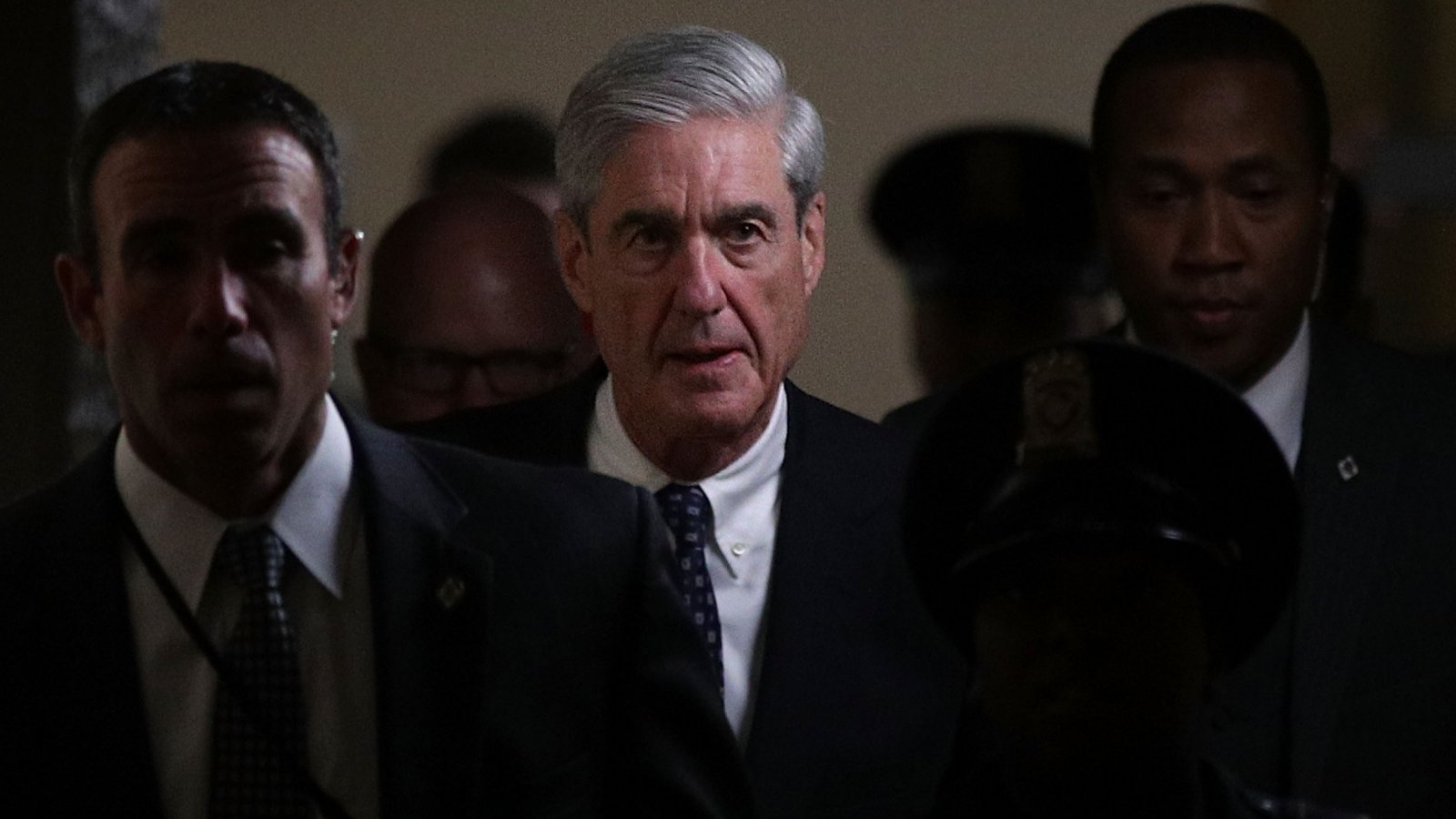
UPDATE: The Washington Post explains how the 49 questions materialized.
In the wake of the testy March 5 meeting, Mueller’s team agreed to provide the president’s lawyers with more specific information about the subjects that prosecutors wished to discuss with the president. With those details in hand, Trump lawyer Jay Sekulow compiled a list of 49 questions that the team believed the president would be asked, according to three of the four people, who spoke on the condition of anonymity because they were not authorized to talk publicly. The New York Times first reported the existence of the list.
Mueller raised possibility of presidential subpoena in meeting with Trump’s legal team (WaPo)
The New York Times has obtained a list of at least four dozen questions Special Counsel Robert Mueller reportedly has for President Trump with regard to his investigation of Russian election interference, possible campaign collusion, and obstruction of justice.
The open-ended queries appear to be an attempt to penetrate the president’s thinking, to get at the motivation behind some of his most combative Twitter posts and to examine his relationships with his family and his closest advisers. They deal chiefly with the president’s high-profile firings of the F.B.I. director and his first national security adviser, his treatment of Attorney General Jeff Sessions and a 2016 Trump Tower meeting between campaign officials and Russians offering dirt on Hillary Clinton.
But they also touch on the president’s businesses; any discussions with his longtime personal lawyer, Michael D. Cohen, about a Moscow real estate deal; whether the president knew of any attempt by Mr. Trump’s son-in-law, Jared Kushner, to set up a back channel to Russia during the transition; any contacts he had with Roger J. Stone Jr., a longtime adviser who claimed to have inside information about Democratic email hackings; and what happened during Mr. Trump’s 2013 trip to Moscow for the Miss Universe pageant.
(...)
The majority relate to possible obstruction of justice, demonstrating how an investigation into Russia’s election meddling grew to include an examination of the president’s conduct in office. Among them are queries on any discussions Mr. Trump had about his attempts to fire Mr. Mueller himself and what the president knew about possible pardon offers to [former National Security Advisor Michael] Flynn.
(...)
A few questions reveal that Mr. Mueller is still investigating possible coordination between the Trump campaign and Russia. In one of the more tantalizing inquiries, Mr. Mueller asks what Mr. Trump knew about campaign aides, including the former chairman Paul Manafort, seeking assistance from Moscow: “What knowledge did you have of any outreach by your campaign, including by Paul Manafort, to Russia about potential assistance to the campaign?” No such outreach has been revealed publicly.
(...)
The special counsel also sought information from the president about his relationship with Russia. Mr. Mueller would like to ask Mr. Trump whether he had any discussions during the campaign about any meetings with President Vladimir V. Putin of Russia and whether he spoke to others about either American sanctions against Russia or meeting with Mr. Putin.
Mueller also appears to have questions about the president's alleged desire to fire him.
“What consideration and discussions did you have regarding terminating the special counsel in June of 2017?” Mr. Mueller planned to ask, according to the list of questions. “What did you think and do in reaction to Jan. 25, 2018, story about the termination of the special counsel and Don McGahn backing you off the termination?” he planned to ask, referring to the Times article that broke the news of the confrontation.
The Times says Mueller's list of questions emerged from months of negotiations over a presidential interview.
In January, Mr. Trump’s lawyers gave Mr. Mueller several pages of written explanations about the president’s role in the matters the special counsel is investigating. Concerned about putting the president in legal jeopardy, his lead lawyer, John Dowd, was trying to convince Mr. Mueller he did not need to interview Mr. Trump, according to people briefed on the matter.
Mr. Mueller was apparently unsatisfied. He told Mr. Dowd in early March that he needed to question the president directly to determine whether he had criminal intent when he fired [FBI Director James] Comey, the people said.
But Mr. Dowd held firm, and investigators for Mr. Mueller agreed days later to share during a meeting with Mr. Dowd the questions they wanted to ask Mr. Trump.
When Mr. Mueller’s team relayed the questions, their tone and detailed nature cemented Mr. Dowd’s view that the president should not sit for an interview. Despite Mr. Dowd’s misgivings, Mr. Trump remained firm in his insistence that he meet with Mr. Mueller. About a week and a half after receiving the questions, Mr. Dowd resigned, concluding that his client was ignoring his advice.
(...)
Mr. Mueller’s endgame remains a mystery, even if he determines the president broke the law. A longstanding Justice Department legal finding says presidents cannot be charged with a crime while they are in office. The special counsel told Mr. Dowd in March that though the president’s conduct is under scrutiny, he is not a target of the investigation, meaning Mr. Mueller does not expect to charge him.
The prospect of pardons is also among Mr. Mueller’s inquiries, and whether Mr. Trump offered them to a pair of former top aides to influence their decisions about whether to cooperate with the special counsel investigation.
The New York Times has the questions separated into four separate categories:
Questions related to Michael T. Flynn, the former national security adviser
Questions related to James B. Comey, the former F.B.I. director
Questions related to Attorney General Jeff Sessions
Campaign Coordination With Russia
Read them here.
Mueller Has Dozens of Inquiries for Trump in Broad Quest on Russia Ties and Obstruction (NYT)
What Mueller Wants to Ask Trump About Obstruction, and What It Means (NYT)